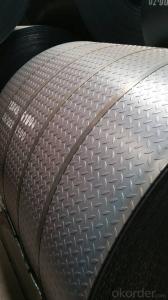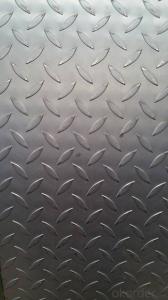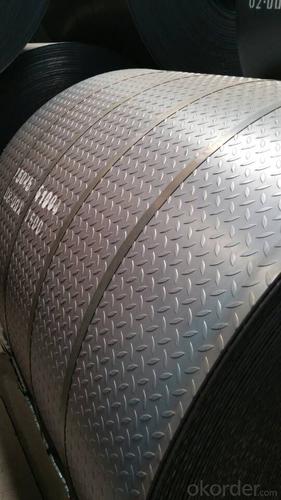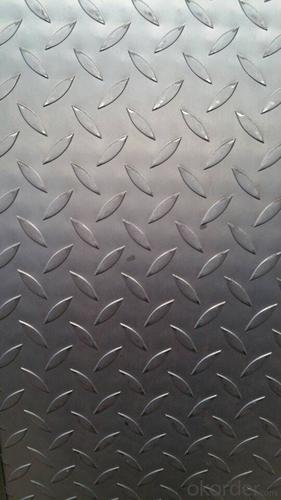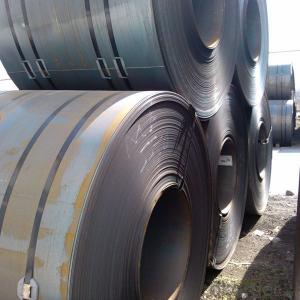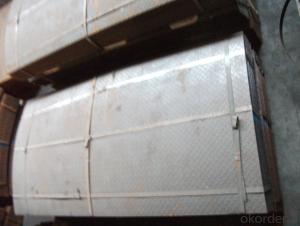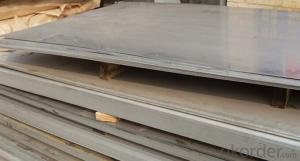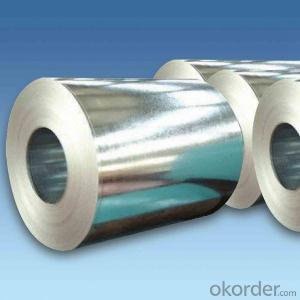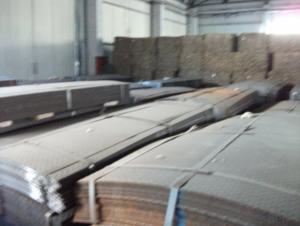40Mn Hot Rolled Steel Plate High Alloy Steel Sheet
- Loading Port:
- Tianjin
- Payment Terms:
- TT OR LC
- Min Order Qty:
- 25 m.t.
- Supply Capability:
- 50000 m.t./month
OKorder Service Pledge
OKorder Financial Service
You Might Also Like
Specification
40Mn Hot Rolled Steel Plate High Alloy Steel Sheet
Product Description:
1.40Mn hot rolled steel plate and sheet with high strength
2. Thickness:8mm-250mm, width:1500mm-2250mm
3.ISO and BV certificate
4.Standard:GB/T 3274-2007,JIS G3106,DIN17100, ASTM, BS4360
5.Delivery condition: According to the requirements of customers, the carbon steel mild steel plate and sheet could be hot rolled, cold rolled, normalized, annealed, tempered, normalized+ tempered and tempering.
6.Application:The low alloy steel plate and sheet with high strength is mainly used in making Plants, general constructions, different kinds of engineering machines such as electric wheels skip, mine car, excavator, loaders, bulldozers, industrial blower, various cranes used in mines and other structures.
Specification:
Material | 40Mn | Round bar | Dia(mm) | 16-600 |
Process | EAF + LF + VD + Forged + Heat Treatment (optional) | Length (mm) | Max 12000 | |
Heat treatment | Normalized / Annealed / Quenched / tempered | Flat bar | Thickness(mm) | 8-500 |
Delivery condition | Hot forged +Rough machined (black surface after Q/T)+ Turned (optional) | Width(mm) | 70-200 | |
Test | Ultrasonic test according to SEP 1921-84 D/d | Length (mm) | Max 12000 |
Chemical Composition:
C | Si | Mn | Cr | Ni | Cu |
0.5~0.8 | 0.17~0.37 | 0.25~1.2 | ≤0.25 | ≤0.30 | ≤0.25 |
Packing and Delivery:
Packing in bundle with steel strips and shipped by break bulk vessel or container (depend on target market and different ports)
Delivery Detail: Approx.45 days
Usage and Applications:
1.40Mn Hot Rolled Steel Plate High Alloy Steel Sheet is used in a large number of architectural and engineering structures. Or it can be used in construction of plants for the production of steel house frames, high-voltage transmission towers, bridges, vehicles, boilers, containers, ships, etc.
2. And we can use this kind of product on the performance of the mechanical parts if the demand is not very high.
3. Some especial material steel round bar can be used for main shaft of steamer, hummer shank, with big section and supper force.
Product Show:
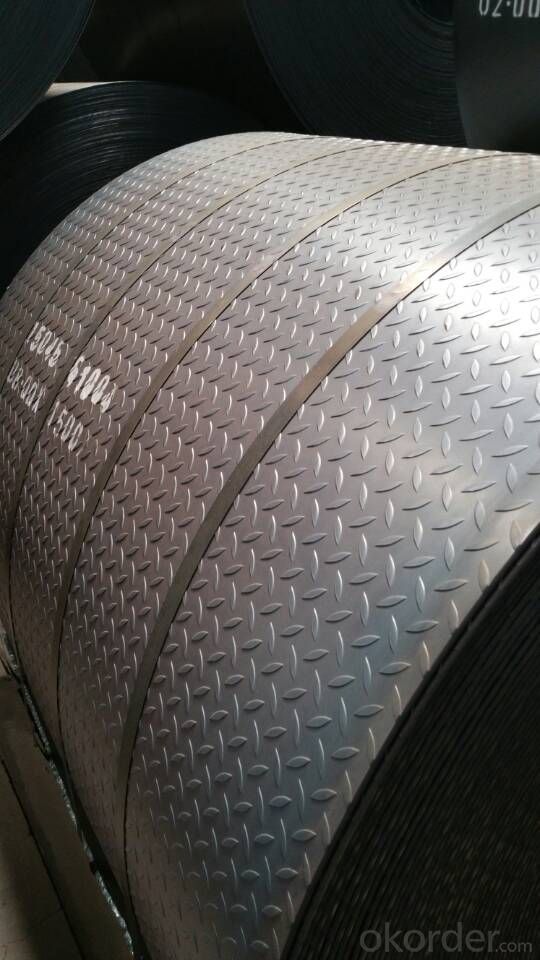
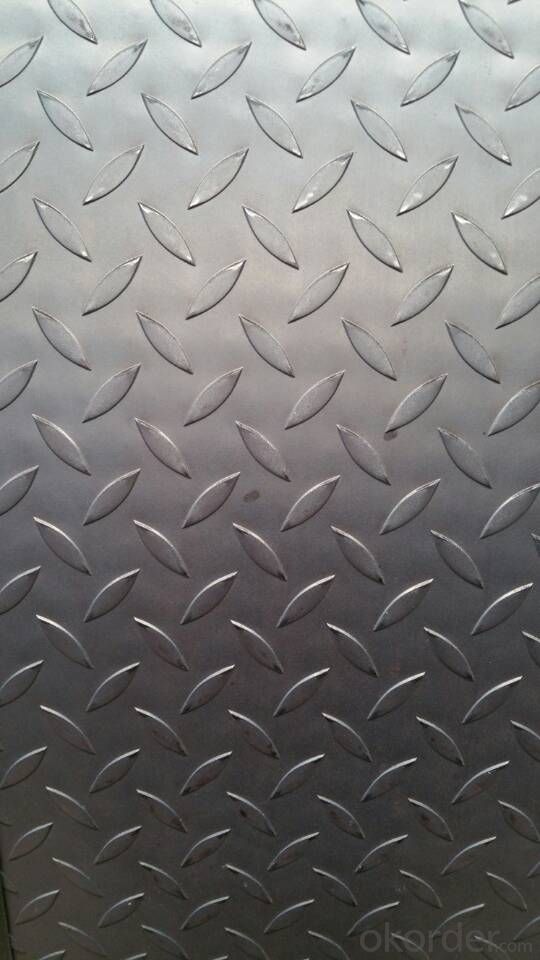
- Q: What are the different methods of testing special steel for quality assurance?
- There are several methods of testing special steel for quality assurance, including mechanical testing, chemical analysis, non-destructive testing, and metallographic analysis. Mechanical testing involves measuring the steel's strength, hardness, and toughness through techniques such as tensile testing, impact testing, and hardness testing. Chemical analysis helps determine the composition and impurities in the steel through methods like spectroscopy and elemental analysis. Non-destructive testing methods like ultrasonic testing, magnetic particle testing, and radiographic testing are used to detect any defects or flaws in the steel without causing damage. Metallographic analysis involves examining the steel's microstructure through techniques like optical microscopy and electron microscopy to assess its internal structure and identify any potential issues.
- Q: How does wear-resistant steel protect against abrasive wear?
- Wear-resistant steel protects against abrasive wear by having a high hardness and toughness, which allows it to withstand the abrasive forces and prevent material loss or surface damage. The steel's composition and heat treatment provide it with enhanced resistance to abrasive particles, reducing wear and extending the lifespan of the material.
- Q: What are the advantages of using special steel in various industries?
- Special steel offers several advantages in various industries. Firstly, it has superior strength and durability, making it ideal for applications that require high resistance to wear, impact, and corrosion. This enables the production of longer-lasting and more reliable components, reducing maintenance and replacement costs. Additionally, special steel can be tailored to meet specific requirements, such as temperature resistance or magnetic properties, allowing for customization in different industries. Furthermore, its excellent machinability and weldability make it easier to work with and shape into complex forms, enhancing design flexibility. Finally, special steel's ability to withstand extreme conditions and harsh environments makes it ideal for industries like aerospace, automotive, construction, energy, and manufacturing. Overall, the use of special steel enhances performance, efficiency, and longevity in various industrial applications.
- Q: What is the chemical composition of special steel?
- Special steel is a type of steel that is specifically manufactured for particular applications, and its chemical composition varies depending on its intended use. However, some common elements found in special steel include iron, carbon, manganese, chromium, nickel, and molybdenum. The precise combination and quantities of these elements are carefully balanced to achieve specific properties such as enhanced strength, corrosion resistance, or heat resistance, making special steel ideal for specialized applications in industries like aerospace, automotive, and construction.
- Q: What is the impact of impurities on the properties of special steel?
- The presence of impurities in special steel can have significant impacts on its properties. Impurities can alter the steel's mechanical properties, such as strength, hardness, and toughness. They can also affect the steel's corrosion resistance and thermal conductivity. Additionally, impurities can lead to microstructural defects, such as grain boundaries or inclusions, which can further weaken the steel. Therefore, minimizing impurities is crucial in order to achieve high-quality special steel with desirable properties.
- Q: What are the different casting methods used for special steel?
- There are several different casting methods that are commonly used for special steel, depending on the specific needs and requirements of the application. These methods include investment casting, sand casting, continuous casting, and centrifugal casting. 1. Investment casting: This method involves creating a wax pattern of the desired part, which is then coated with a ceramic shell. The wax is melted out, leaving behind a hollow shell, which is then filled with molten steel. Once the steel has solidified, the ceramic shell is broken away, and the final part is obtained. Investment casting allows for complex shapes and intricate details to be created accurately, making it suitable for producing high-quality and precise special steel components. 2. Sand casting: Sand casting is one of the oldest and most widely used casting methods. It involves creating a mold from a mixture of sand and a binder, typically clay. The mold is formed by packing the sand mixture around a pattern of the desired part. Molten steel is then poured into the mold, filling the cavity, and left to cool and solidify. Sand casting is a versatile and cost-effective method, suitable for producing large and heavy special steel components. 3. Continuous casting: This method is commonly used for producing long steel products, such as bars, rods, and billets. It involves continuously pouring molten steel into a water-cooled mold, which solidifies the outer surface of the steel. The solidified steel is then continuously withdrawn from the bottom of the mold, while more molten steel is poured in from the top. Continuous casting allows for the production of high-quality, defect-free steel with a consistent cross-section. 4. Centrifugal casting: In this method, the mold is rotated at high speeds while molten steel is poured into it. The centrifugal force pushes the molten steel towards the outer walls of the mold, resulting in a dense and compact casting with improved mechanical properties. Centrifugal casting is particularly suitable for producing cylindrical or tubular special steel components, such as pipes and rings. Overall, the choice of casting method for special steel depends on factors such as the complexity of the part, the required quality and accuracy, the size and shape of the component, and the production volume. Each method has its advantages and limitations, and careful consideration is necessary to select the most appropriate casting method for a specific application.
- Q: How does special steel contribute to reducing production costs?
- Special steel contributes to reducing production costs in several ways. Firstly, special steel has higher strength and durability compared to regular steel, which means that it can be used to make lighter and more efficient components. This leads to reduced material usage and lower costs. Additionally, special steel has superior corrosion resistance, which prolongs the lifespan of machinery and equipment, reducing the need for frequent repairs or replacements. Moreover, special steel can be customized to specific requirements, allowing for more precise manufacturing processes, minimizing waste, and optimizing production efficiency. Overall, special steel helps in minimizing material costs, maintenance expenses, and maximizing productivity, leading to significant reductions in production costs.
- Q: How does special steel contribute to product innovation?
- Special steel contributes to product innovation in several ways. Firstly, special steel offers enhanced mechanical properties such as high strength, hardness, and wear resistance. This allows designers and engineers to create innovative products that can withstand higher stresses, operate in extreme conditions, and have improved longevity. For example, special steel is commonly used in the aerospace industry to manufacture lightweight yet strong components that increase fuel efficiency and improve overall aircraft performance. Additionally, special steel can be tailored to have specific characteristics such as corrosion resistance, heat resistance, or magnetic properties. This enables the development of innovative products that can operate in challenging environments, such as marine structures, power plants, or electronic devices. For instance, special stainless steel alloys are extensively used in the medical field to produce implants and surgical instruments that are biocompatible, durable, and resistant to harsh sterilization processes. Furthermore, special steel can be manufactured with precise dimensions and tolerances, allowing for intricate and complex designs. This promotes product innovation by enabling the creation of intricate components, such as gears, bearings, or turbine blades, that require high precision and reliability. These advanced designs can improve the efficiency, performance, and overall functionality of various products, ranging from automotive engines to wind turbines. Moreover, the versatility of special steel enables it to be combined with other materials, such as polymers or composites, to create hybrid products with unique properties. This opens up possibilities for innovation in various industries, including automotive, construction, and consumer electronics. For example, special steel-reinforced concrete structures can be more robust and durable, while special steel-reinforced polymers can improve the strength and impact resistance of lightweight components. In conclusion, special steel contributes to product innovation by providing enhanced mechanical properties, tailored characteristics, precise dimensions, and the ability to be combined with other materials. These capabilities empower designers and engineers to create innovative products that have improved performance, durability, and functionality, leading to advancements in various industries.
- Q: How does special steel contribute to the railway industry?
- Special steel plays a crucial role in the railway industry by contributing to the development and maintenance of efficient and reliable rail systems. The unique properties of special steel, such as high strength, durability, and resistance to wear and tear, make it an ideal material for various components and structures within the railway infrastructure. One of the key areas where special steel contributes to the railway industry is in the manufacturing of rails. Special steel rails are designed to withstand heavy loads and intense usage, ensuring the safe and smooth movement of trains. These rails are highly resistant to wear, fatigue, and deformation, resulting in longer service life and reduced maintenance costs. Additionally, special steel is used in the manufacturing of wheelsets, which are critical components of trains. The high strength and durability of special steel make it ideal for wheelset production, ensuring reliable performance and minimizing the risk of derailments. The use of special steel in wheelsets also contributes to increased operational efficiency, as it reduces friction and enhances energy transmission, leading to improved fuel economy and reduced environmental impact. Furthermore, special steel is utilized in the construction of bridges, tunnels, and other infrastructure elements within the railway network. These structures must withstand heavy loads, extreme weather conditions, and various environmental factors. Special steel's exceptional strength, corrosion resistance, and longevity make it a preferred choice for such applications, ensuring the safety and reliability of rail systems. In summary, special steel significantly contributes to the railway industry by providing the necessary strength, durability, and resistance to wear and tear for various components and structures. Its use in rails, wheelsets, and infrastructure elements enhances the efficiency, reliability, and safety of rail systems, ultimately benefiting passengers, freight transport, and the overall transportation sector.
- Q: What are the main factors that determine the cost of special steel?
- The cost of special steel is primarily influenced by various key factors. Firstly, the composition of the steel plays a crucial role in determining its cost. Special steels often contain specific alloying elements that enhance their properties, such as corrosion resistance, strength, or heat resistance. The cost of these alloying elements can vary considerably, and the higher the quantity and complexity of the alloy, the greater the cost of the steel. Secondly, the manufacturing process employed to produce the special steel can significantly impact its cost. Special steels typically require more intricate and controlled manufacturing processes compared to regular steel. These processes may involve additional steps like precise heat treatment, forging, or casting, which can raise the overall cost of the steel. Another essential factor that affects the cost of special steel is the market demand and availability. If a particular type of special steel is in high demand but limited supply, its cost tends to increase. Conversely, if there is an excess of a specific type of special steel, its cost may decrease. Market forces, including global supply and demand dynamics, can have a substantial impact on the cost of special steel. Furthermore, the quality and certification of the special steel can also influence its cost. Higher-quality steel that meets stringent industry standards and certifications often commands a higher price due to the additional testing, quality control, and documentation required. Transportation and logistics costs are also significant factors to consider. If the steel needs to be transported over long distances or requires specialized handling, it can contribute to the overall cost. Lastly, economic factors like currency exchange rates, inflation, and government policies can impact the cost of special steel. Fluctuations in exchange rates can affect the cost of raw materials and manufacturing equipment, which, in turn, influence the final price of the steel. Government policies, such as import and export tariffs or subsidies, can also have an impact on the cost of special steel. In conclusion, the cost of special steel is determined by various factors, including composition, manufacturing process, market demand and availability, quality and certification, transportation and logistics, and economic factors. Understanding these factors is crucial for both buyers and sellers of special steel in order to make informed decisions and ensure competitive pricing.
Send your message to us
40Mn Hot Rolled Steel Plate High Alloy Steel Sheet
- Loading Port:
- Tianjin
- Payment Terms:
- TT OR LC
- Min Order Qty:
- 25 m.t.
- Supply Capability:
- 50000 m.t./month
OKorder Service Pledge
OKorder Financial Service
Similar products
Hot products
Hot Searches
Related keywords
